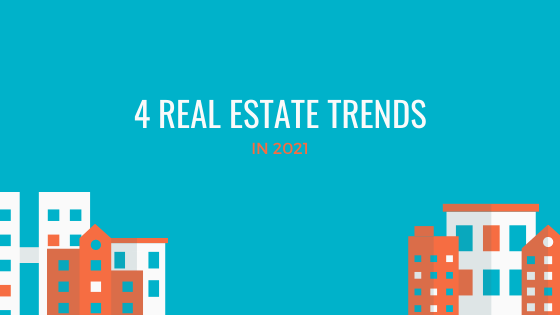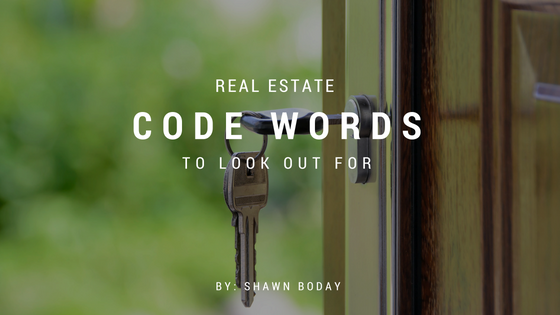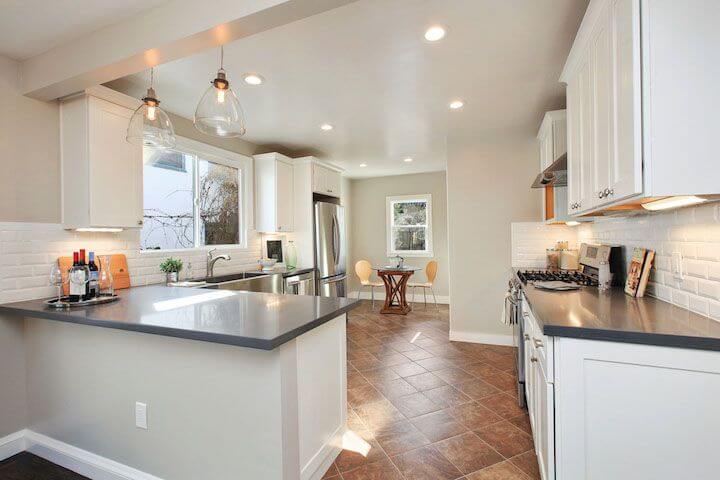
by Shawn Boday | Apr 25, 2024 | Business, Home Buying Process, House Flipping, Housing Market, Real Estate, Real Estate Investing, Real Estate Tips, Real Estate Value, Shawn Boday
As the population ages, seniors play an increasingly significant role in shaping the real estate market. With changing preferences, needs, and lifestyles, this demographic drives demand for specific housing and amenities. This blog post will explore how seniors influence the housing market and what this means for real estate trends.
Rise in Demand for Senior-Friendly Housing
One of the most significant impacts of the aging population on the real estate market is the growing demand for senior-friendly housing options. As individuals age, they often seek homes that are more accessible, easier to maintain, and better suited to their changing needs.
Many seniors are downsizing from larger homes to smaller, more manageable properties like condos, townhouses, or single-level dwellings. These housing options typically require less maintenance and offer amenities such as community centers, fitness facilities, and on-site healthcare services, which appeal to seniors looking to simplify their lives and enjoy an active lifestyle.
Age-Friendly Features and Amenities
In addition to downsizing, seniors seek homes with age-friendly features and amenities that promote safety, comfort, and independence. Features such as grab bars in bathrooms, wider doorways and hallways, step-free entrances, and low-maintenance landscaping are becoming increasingly popular among older homeowners.
Senior living communities and retirement villages are also gaining popularity. These communities offer a range of amenities and services tailored to the needs of older adults. These communities often include on-site healthcare facilities, recreational activities, social events, and transportation services, providing residents with a supportive and vibrant environment to age gracefully.
Impact on Housing Inventory and Affordability
The growing demand for senior-friendly housing options affects housing inventory and affordability in many markets. As more seniors choose to age in place or downsize to smaller homes, there is increased competition for these properties, leading to higher prices and reduced availability, particularly in desirable retirement destinations.
Additionally, the influx of retirees into certain areas can pressure local housing markets, driving up prices and making it more challenging for younger generations to afford homeownership. This can exacerbate affordability issues, especially in areas with limited housing supply and high demand.
Opportunities for Real Estate Investors
The aging population also presents opportunities for real estate investors who are savvy enough to recognize and capitalize on emerging trends. Investing in senior-friendly housing options, such as multifamily properties, assisted living facilities, or senior living communities, can offer attractive returns and steady rental income, particularly in markets with a large and growing senior population.
Moreover, retrofitting existing properties to include age-friendly features and amenities can add value and appeal to older homeowners looking to age in place or downsize. Investing in renovations and upgrades that cater to the needs of seniors can make properties more attractive to this demographic and increase their marketability and resale value.
Conclusion
The aging population is profoundly impacting the real estate market, driving demand for senior-friendly housing options and amenities. As more seniors seek homes that are accessible, comfortable, and supportive of their changing needs, the housing market will continue to evolve to accommodate these preferences. For real estate professionals, investors, and developers, understanding and adapting to the needs of the aging population presents significant opportunities for growth and innovation in the years to come.

by Shawn Boday | Dec 11, 2023 | Real Estate, Real Estate Investing
In the ever-evolving landscape of real estate, the high-end market stands as a testament to opulence, exclusivity, and discerning taste. As we delve into the realm of luxury real estate, we embark on a journey through the most coveted addresses and examine the trends that shape this elite segment of the property market.
-
The Global Tapestry of Luxury: Luxury real estate transcends borders, weaving a global tapestry of extravagant residences. From the iconic penthouses overlooking Manhattan’s skyline to the breathtaking villas nestled in the hills of Tuscany, high-net-worth individuals seek more than just a home—they seek an experience.
Top-tier cities such as London, Hong Kong, and Dubai consistently rank as epicenters for luxury real estate. These cosmopolitan hubs attract investors with their vibrant cultural scenes, economic prowess, and architectural marvels. In recent years, emerging markets like Miami, Shanghai, and Barcelona have also carved a niche for themselves, providing unique opportunities for those seeking a blend of luxury and innovation.
-
Architectural Opulence and Design Trends: Luxury real estate is not merely about square footage; it is an expression of architectural prowess and innovative design. The discerning buyer today craves homes that seamlessly integrate technology, sustainability, and timeless aesthetics.
Architectural marvels, from contemporary masterpieces to meticulously restored historic properties, are highly sought after. Open-concept living spaces, floor-to-ceiling windows that frame panoramic views, and eco-friendly features have become staples in the luxury market. The integration of smart home technology, offering seamless control over security, climate, and entertainment, is now expected rather than exceptional.
-
The Rise of Wellness-Oriented Residences: In the pursuit of a holistic lifestyle, wellness has become a pivotal factor in luxury real estate. High-end properties now boast private spas, state-of-the-art fitness centers, and even wellness gardens. The trend towards integrating health and well-being into the living experience reflects a broader societal shift towards mindful living.
Buyers are increasingly drawn to residences with advanced air and water purification systems, dedicated spaces for meditation and yoga, and designs that promote natural light and ventilation. In essence, luxury real estate has evolved beyond the material aspects of opulence to cater to the well-being of its occupants.
-
The Influence of Digital Innovation: The digital era has revolutionized how luxury real estate is marketed and experienced. Virtual reality (VR) and augmented reality (AR) technologies now allow potential buyers to tour properties from the comfort of their current residences. High-quality 3D renderings and immersive virtual walkthroughs have become invaluable tools for showcasing the finer details of luxury homes.
Additionally, blockchain technology is making its mark on the industry by enhancing transparency and security in property transactions. Smart contracts, powered by blockchain, streamline the buying process and mitigate potential legal complexities.
-
Sustainable Luxury: A Growing Imperative: As environmental consciousness continues to permeate various aspects of life, luxury real estate is no exception. High-net-worth individuals are increasingly gravitating towards sustainable properties that prioritize energy efficiency, eco-friendly construction materials, and green spaces.
Solar panels, rainwater harvesting systems, and LEED (Leadership in Energy and Environmental Design) certifications have become hallmark features of environmentally conscious luxury residences. The fusion of opulence with sustainability reflects a commitment to responsible living and resonates with a new generation of affluent buyers.
In the realm of luxury real estate, the only constant is change. As societal values shift, and technological advancements continue to redefine the concept of opulence, the high-end property market remains a dynamic and alluring domain. For those navigating its intricate landscape, staying attuned to global trends, architectural innovations, and the evolving definition of luxury is paramount. As we step into the future, the world of luxury real estate promises to be an exhilarating tapestry where innovation, elegance, and exclusivity converge.

by Shawn Boday | Jan 6, 2021 | Business, Home Buying Process, Housing Market, Real Estate, Real Estate Investing, Real Estate Tips, Seattle, Shawn Boday
In 2020, the housing market experienced record sales due to extremely low mortgage rates and the new flexibility that comes with working from home. In addition, home prices have remained competitive as demand continues to increase. But what will the housing market look like in 2021? Take a look at what experts predict the trends will be this year.
-
Low Inventory
The number of homes on the market has been pretty low. It has been relatively easy for sellers to sell their homes but not as easy for buyers to purchase. Supply and demand will likely continue and increase home prices by quite a bit during the first half of 2021. But during the second half of the year, economic headwinds may start to cause prices to decrease slightly and the number of homes on the market to increase.
-
Rising Home Prices
Given the pressure to buy quickly because of low inventory, home prices should continue to increase, and there won’t be much room or time for negotiation. While this is great for sellers who stand to make a substantial profit on their home, it’s not the best news for buyers. If you’re looking to purchase a home in 2021, you must go into the process knowing what your max budget is. You need to be ready to walk away from home despite pressure to act quickly and spend more than you can afford.
-
Incredibly Low Interest Rates
Mortgage interest rates dropped to an all-time low in 2020, and this trend is expected to continue into 2021. Many economists expect interest rates to hover around 3 percent in 2021, increasing compared to 2020 rates but still incredibly low. Low interest rates are good news for both buyers and sellers because they help reduce overall mortgage costs and make buyers more motivated.
-
More Online Services
More virtual tools, such as online selling and buying, virtual real estate agents, online closings, and more have become quite favorable during the COVID-19 pandemic. As the virus continues to surge, these are expected to continue to be prominent in 2021 as well.
Buying and selling a home can be a stressful task. While the real estate market has faced many unprecedented challenges recently, there are some significant benefits to buying and selling homes right now. These positive trends are expected to continue into 2021, so be sure to consult with a real estate agent as soon as possible if you’re considering listing or purchasing a home this year.

by Shawn Boday | Jun 1, 2018 | Real Estate, Real Estate Investing, Shawn Boday
House hunting can be a fun, yet frustrating experience. While it’s exciting to look for a home of your own, you also have to recognize that sellers are trying to put their homes in the best possible light. By recognizing common phrases, you’ll be better equipped to know which homes should be avoided altogether.
“Pride of Ownership Shows”
At first glance, this phrase implies that the owners have taken good care of the property. However, in most cases, it also means little, if anything, has been updated. You can look forward to decades-old tiling, antique appliances, and more than a few rooms that need a remodel.
“In One of the Hottest Neighborhoods”
If you see a descriptive phrase that uses words like “hot” or “up and coming,” be aware that you’re expectations may fall short of the reality. Often, sellers will use these terms to describe neighborhoods that are expected to take a good turn and attract developers. Typically, these neighborhoods will lack nearby amenities and may only show the promise of improvement.
“Attention: Investors”
Even if you are an investor, you might want to stay away from properties with this as a headline. It indicates a property in distress most of the time and suggests you will need to make several updates just to make the property welcoming. If you’re looking for a home, this may not be the best choice for you.
“Offered as Is”
This is another one that would be best avoided. Often, “as is” suggests the owner knows there’s a great deal wrong with the property and he’s hoping to pass his problems onto an ambitious buyer. By the time the needed repairs are complete, you may have spent more money than the home is actually worth.
“Condo Alternative”
Think condo, but smaller. If you’re on the market for a single-family home, you’re probably looking for something roomy and something with potential for expansion. You’ll find neither in homes that are marketed with this phrase. These are typically very small homes that won’t suit your needs.
“Natural Landscaping”
This is a deceptive phrase indicating you’ll probably spending a few weeks just getting the yard presentable. The current owner probably hasn’t put much effort into maintaining the “curb appeal” of the home. Of course, if you love the rest of the home and want to spend the money, you can always hire professional landscapers to do the dirty work for you.
These are some common phrases used in real estate marketing. While you should be wary of them, not every one of them is the kiss of death. Be aware that you may be getting more than you expect, but also keep an open mind. You may end up getting that diamond in the ruff.

by Shawn Boday | May 15, 2017 | Home Buying Process, Real Estate, Real Estate Tips, Real Estate Value
Know Your Home
Potential homebuyers will be looking carefully at your home. Make sure you aren’t caught by surprise. Get your home inspected. Find out how much potential repairs will cost. Even if you don’t plan to make those repairs, it will keep you from being blindsided by the costs, and you will be ready to negotiate with homebuyers who are pushing for deductions.
Get information accessible and organized. Have all your papers: everything from insurance to paint colors. Know if your house has suffered any losses, and have records of any repairs. You don’t want to find yourself in the uncomfortable position of negotiating with a homebuyer who knows your house better than you do.
Think About Curb Appeal
If a buyer drives past your house, what will they think? Will they see an attractive facade or a well-maintained garden? Or will their eye be drawn to an ugly tree, a lopsided mailbox, or a badly-paved driveway? Your house’s outward appearance is the first thing that homeowners will see, and that first impression can make a huge difference. If you have the money to hire a landscaper or other specialist, do it. But if not, many of the changes you can make are simply a matter of getting outside, rolling up your sleeves, and taking care of them. Weed the garden, rake the yard, and prune the trees.
Clean Thoroughly
Don’t just vacuum. Repaint the walls. Have your carpets professionally cleaned. Move the furniture. Pull out the stove and scrub the floor beneath. Clean under the fridge. Dust the blinds. Clean places you’ve never cleaned before. Be ready to get messy: dirt can really build up when left unattended.
Stow Your Stuff
Not only does a cluttered home look messy, it also looks small. Remove at least 30 percent of your belongings from sight. The brunt of your focus should be on countertops, the pantry, and the master bedroom closets, which should be as empty as possible.
Empty shelves and a clear floor scream: Look, there’s so much room, we don’t have enough stuff to fill it all. So hide everything you can afford not to have in the attic or crawlspace, stow it away in a friend’s house, or even rent out a storage facility. And take down any especially eclectic decorations: Homebuyers do not want to see your ceramic chicken collection; they want to see your home.
Hide Your Kids, Hide Your Pets
If someone is coming to visit your house, send your kids off to a friend’s or relative’s, and have them take the cat with them. Children and animals are notoriously messy, and you don’t want your guests wondering about how you got the all dog hair out of the carpet (hint: you didn’t) or how you can guarantee that there’s not a hole in the wall somewhere stuffed with legos (hint: you can’t). Besides, kids and pets are also notoriously distracting, and you want your visitors to focus on your home.





